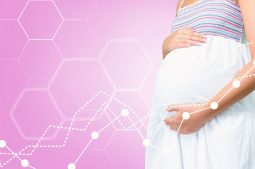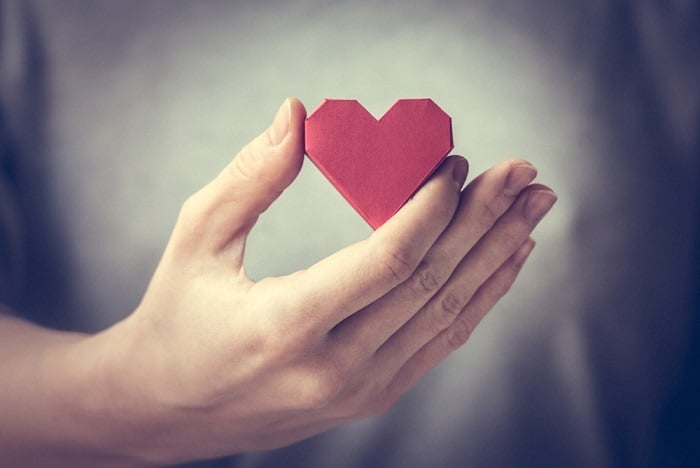

For some of those hoping to have a child through assisted reproductive treatments, embryo donation may be the way forward. There are instances where the female partner may not have suitable eggs, and so, a donor will be required. A pre-fertilized egg – an embryo – can be the perfect solution. Due to limited availability of embryos in her home country, IVF abroad may seem like a promising option. With the progressive laws surrounding egg donation in Spain, IVI’s home country might be the answer, but there are also options in other European destinations. Regardless of your preferred choice, or where you decide to undergo treatment, it is worth having all the information to hand. What is the process of embryo donation like for the donor, and what are her rights? What are the rights of the patient, the prospective mother? We address everything you need to know.
Who is suitable?
Women over a certain age may prefer donated eggs or embryos. Egg quality decreases with age, and to avoid genetic anomalies, women over the age of 40, in particular, may benefit from considering egg or embryo donation. The female partner may also lack eggs due to cancer treatments, or even premature menopause. Additionally, infertility in men can contribute to a couple’s decision to opt for embryo donation. Unexplained infertility may be the culprit, in which there is no easily discernible explanation. In this case, when trying to get pregnant, it is worth considering all the options, including embryo donation, which can be an excellent choice. As with all treatments for infertility, experts at your clinic will know your situation and needs better than anyone, and will be able to advise on the best course of action.
Donating an embryo
Embryo donation is also called ‘embryo adoption’. The distinction is made because the egg has already been fertilized, and so the potential for a child is already well in motion. Rather than taking on blank donated material, a patient is opting to try to implant when the process of fertilisation has already begun.
An embryo will be donated by a patient who has already completed treatment, and has been successful in starting her family. This selfless act means that others who are eager to have a child may be given a chance that may otherwise be out of reach. As an altruistic act, it is also anonymous. As with all material donation, the clinic will have a record of the details of the biological parents, including physical characteristics and any genetic anomalies. These will not be disclosed to the patient unless in extreme circumstances.
Addressing potential issues with embryo adoption
There are, of course, issues associated with embryo donation, but the potential benefits outweigh any negatives. Donors of embryos may already have had success: these are the spare fertilised eggs left over from another person or couple’s journey to conceive a child through IVF. The recipients of a donated embryo may feel confident that other embryos created from the same set of genetic material have grown into healthy children. They can have a higher confidence that the procedure will work for them. Donors also have to be under the age of 35, which avoids potential issues relating to genetic degradation of her eggs. However, embryo donation, or adoption, may still appeal to single women, as they will not need to find a donor of both egg and sperm; the process for obtaining an embryo may have one or two fewer steps.
The embryo will have been frozen, but IVI’s ‘defreezing’ survival rate is about 97%, terrifically high odds by anybody’s rate. With advancements made in this field every year, the risk of degradation from the freezing process is becoming more minimal than ever before. IVI are leaders in the field in new techniques, so thawing eggs, sperm and embryos is done in the best way possible. Sperm and egg freezing has been a staple of assisted reproduction for decades, and today it is safer and more efficient than ever.
It is understandable to be concerned about potential issues that may arise with any medical procedure, but IVI have been innovating and improving methods for decades, and for hopeful parents looking to add to their family, any worry about potential issues associated with donation of embryos may be eased by our long record of success.
Embryo transfer
When it comes to transferring an embryo into the prospective mother, the process is the same as with IVF that uses the patient’s own eggs or donated eggs. A fertilised egg, or embryo, is transferred into the uterus of the female patient no matter where the genetic material originated. Either one or two embryos may be transferred, to maximise the chance of one implanting into the lining of the uterus. Once this has happened, nature will take its course and the pregnancy should continue in much the same way as with unassisted conception.
The female patient may be a little sore after embryo transfer, though there will be no requirement to avoid travel or other activities. If the treatment results in pregnancy, then she should carry on as normal, just as she would if she had fallen pregnant through unassisted means.
No matter how the child is conceived, he or she remains the child of the woman giving birth. She has carried her child for nine months, planning and thinking of its future. At IVI, we know the joy that comes from finally being able to create a family, and the love that is shared between a parent and their child is unparalleled. No matter where the genetic material comes from, whether it is a donated egg, sperm or embryo, the patient can rest assured that the child is hers.




1 Comment
Are you offering embryo donation?
If yes, is there a waiting list? And for how long?